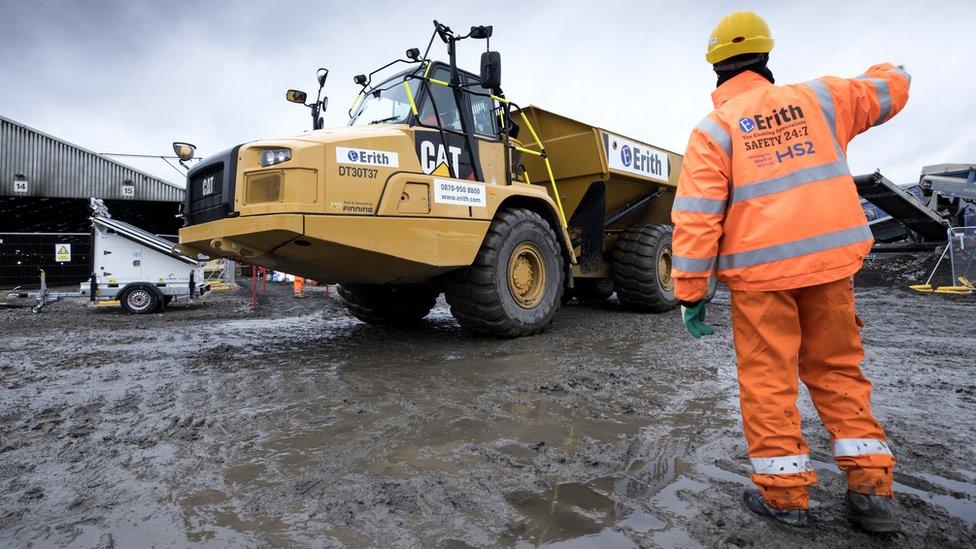HS2: How the North has reacted to Sunak’s U-turn
- Published
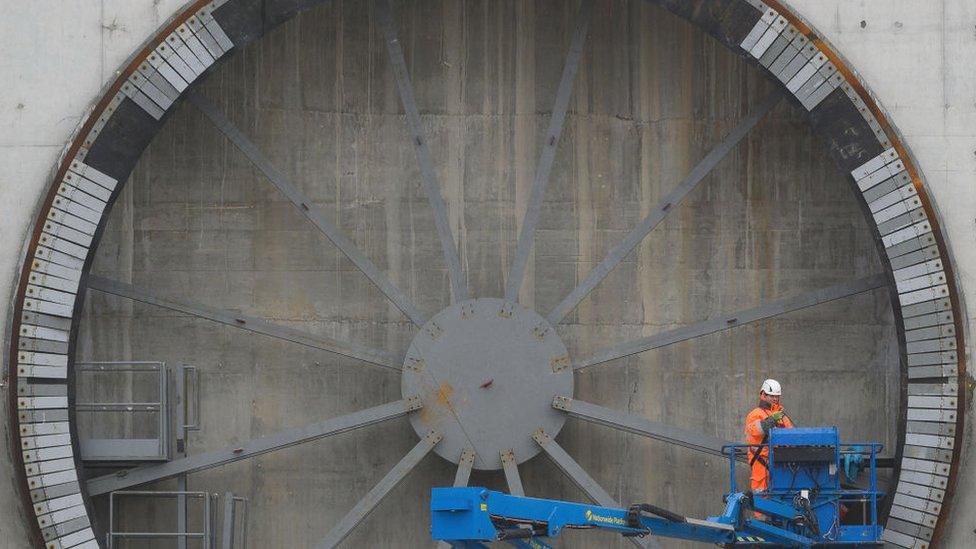
The Birmingham to Leeds leg of HS2 was scrapped in 2021 - and the stretch to Manchester was ditched this week too
Supply to the Northern Powerhouse was interrupted this week when long-term aspirations and plans collided with reality as one big transport project - HS2 - was replaced with a multitude of smaller ones. What does the new way it will be energised mean to people and businesses in those areas?
Collectively, those newly-announced smaller transport projects could affect people over a wider area than HS2 - but only if they actually happen. The big problem the government has is that trust in what they promise has been shaken.
Before this week, many northern leaders in northern England believed the future economic growth of a vast region from South Yorkshire to the border with Scotland would be underpinned by HS2.
They had just about got over the disappointment of the eastern leg - from Birmingham to Leeds - being scrapped in 2021.
But then came the official confirmation of politics' most recent worst-kept secret - the leg to Manchester was being jettisoned too.
Henri Murison, chief executive of the Northern Powerhouse Partnership, said he feared the announcement would set the North back 100 years. He is the front man for business and civic leaders across the North, who had a clear vision.
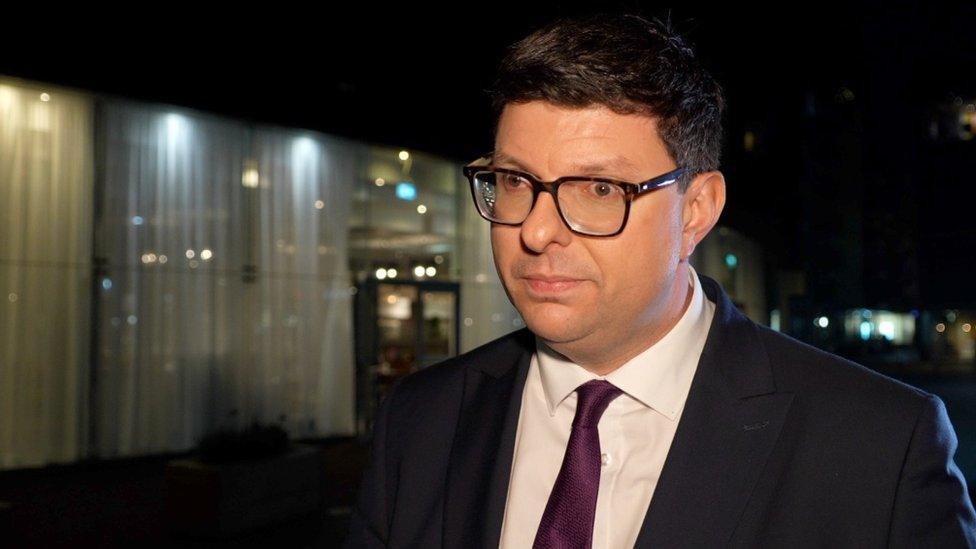
Henri Murison said he was worried the HS2 move would set the North back a century
"One high-speed line for the west, one for the east and - across the fireplace - a lintel, Northern Powerhouse rail," he says.
If the fireplace has been destroyed, will the North be left out in the cold?
The government insists not and points to billions of pounds which are not now being spent on HS2 and instead being redirected to other northern projects.
"Every region of our country will have more transport investment because of this decision," a government spokesperson said. "Every penny committed to the Northern leg will go to the North."
Tees Valley Conservative mayor, Ben Houchen, writing in the Northern Echo newspaper this week said "good riddance" to the back of HS2, which he believed offered "absolutely no benefit" to Teesside or the wider North East.
Future journey times quoted by Prime Minister Rishi Sunak this week were impressive: Manchester to Bradford in 30 minutes, Sheffield in 42 minutes and across to Hull in less than an hour-and-a-half. All on electrified lines.
However, while the projects are new, some of the infrastructure along parts of the routes was already being built. TRU - Transpennine Route Upgrade - is ongoing and will initially see the electrification of the route between Manchester and York by about 2035.
What is new though is a commitment to electrify the Hope Valley line between Sheffield and Manchester, build a new station in Bradford, open a new line in the Don Valley to Sheffield and extend electrification to Hull.
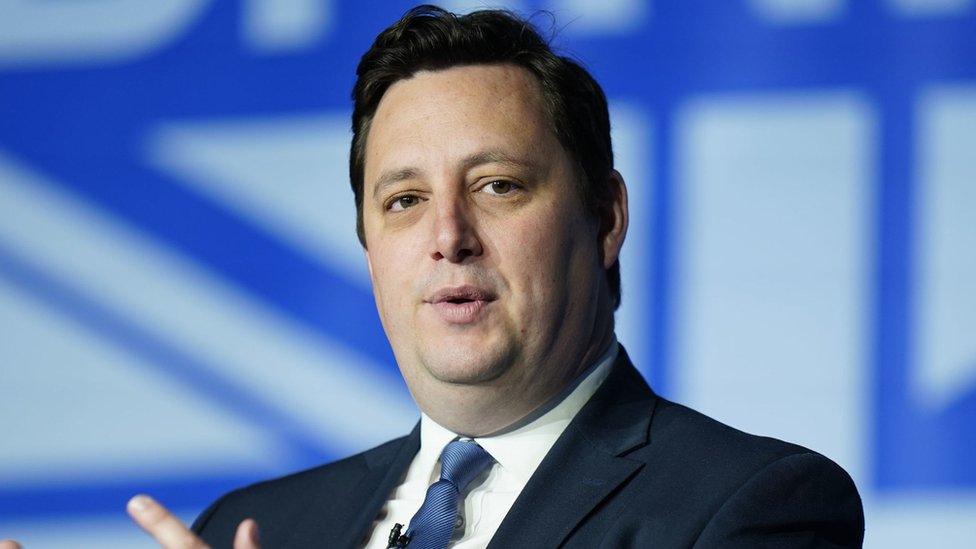
Tees Valley mayor Ben Houchen has said "good riddance" to HS2
Plus there is the pledge of lots more electrification on other northern routes. The gantries for overhead lines put in recently at Stalybridge for example, are just the start.
Leeds to Sheffield, which can be torturously slow on a train for a 36-mile journey, will be transformed by electrification, under the new plan.
With the pull of a lever and a switch of the points, the prime minister diverted £36bn from HS2 to these new proposals. But it has left one northern leader scratching her head over the sums.
Tracy Brabin, the Labour metro mayor of West Yorkshire, is especially interested in plans for Bradford and the county's Mass Transit project, which will introduce a tram network.
"I actually don't recognise the numbers that have been attached to projects," she says.
"It's not the numbers that Transport for the North have worked out what we need to make it possible and in some cases the numbers are half of what it would cost to deliver."
The government says the £2.5bn West Yorkshire Mass Transit system is fully funded and Leeds will no longer be the biggest city in western Europe without such infrastructure.
York-based rail journalist Phil Haigh questions whether the government can be trusted to deliver, having just ditched a project which had been planned for 15 years.
"The transformational nature that HS2 was promising has just been thrown out of the window," he says.
"This is the sort of thing that would have been attracting people out of their cars and creating the space on the existing railway to run more local trains, freight trains and to take more lorries off the roads. What we are actually getting without HS2 is more congested motorways and more crowded roads."
The North is not just the Transpennine/M62 corridor. Some standalone projects have been pledged elsewhere. Stocksbridge to Sheffield is a distance of 10 miles and takes half an hour to drive. This week a new 11-minute rail link between the two was announced.
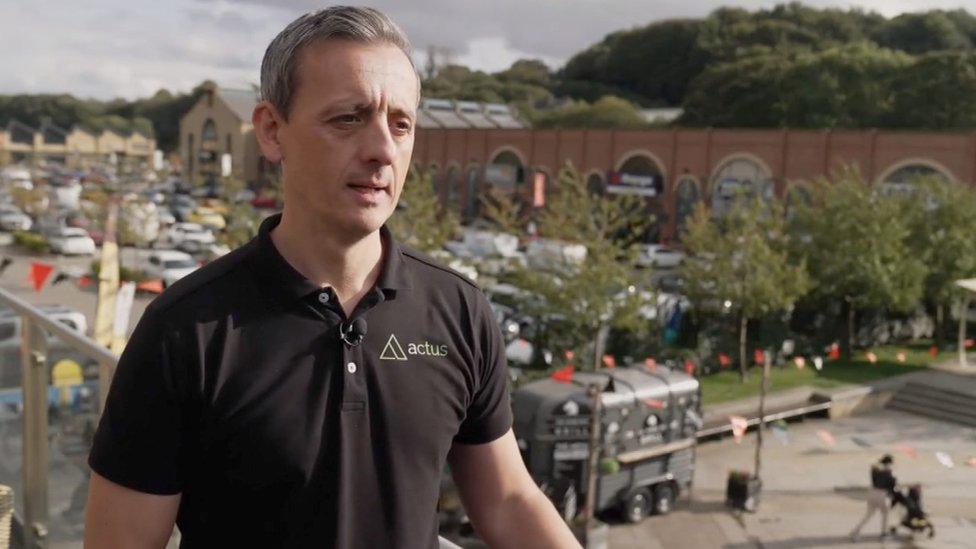
Insurance firm manager Sam Leeder feels better connectivity locally is more important than knocking travel time off the journey from Sheffield to London
Sam Leeder, manager of ACTUS Insurance in Stocksbridge, says that would be "fantastic" and really help improve its high street.
"It would be good to see more people accessing it without using their cars. Better connectivity locally is more important than knocking time off to travel from Sheffield to London," he says.
In the North East, a new station is being planned for Ferryhill in County Durham. The development nearby of the Leamside Line has been pledged too.
But concerns were raised this week that it might not happen after Transport Minister Richard Holden, said it had only committed to "looking into" the scheme.
However, Sedgefield MP Paul Howell, said on X, formerly Twitter, that "Ferryhill will happen and the North East has funds allocated which are available for the Leamside and/or other projects as decided for by the NE".
Meanwhile a stretch of the A1 between Morpeth and Ellingham will be upgraded to dual carriageway over a 13-mile stretch after being talked about for decades. The National Highways website states the cost, start and end dates are all TBC.
'Fundamental challenge'
Some of what is being proposed won't happen for some years. The prime minister has said that many of these projects will be delivered before HS2 was planned to arrive in the North - 2041 had been set for services to Manchester.
This means everyday life for rail travellers in the North is not likely to change much for a while. The reality is frequent delays on crowded lines.
However, other initiatives are immediate, such as keeping single bus journey fares capped at £2 which will be extended until the end of next year.
Stand on platform 14 at Manchester Piccadilly - one of only two through-platforms at the station - and it is a procession of trains.
While one service waits in the platform, the next is usually standing at a red light at the far end of the platform ready to move in. Like so many rail journeys in the North, it is fine when everything works but one problem can cause huge knock-on delays.
The fundamental challenge for the government in northern England though is trust in delivering these promises. So many of the projects pledged this last week have been talked about for years - Leeds trams, stations in Bradford, upgrading the A1 in Northumberland.
All sound familiar - because they are.
"We are changing our approach to transport infrastructure, focused on the journeys that matter most to people, that drive growth and jobs, and level up our country," a government spokesperson said.
But if these new projects fall by the wayside, it will potentially affect the way people vote and view Westminster from the North.
Related topics
- Published5 October 2023
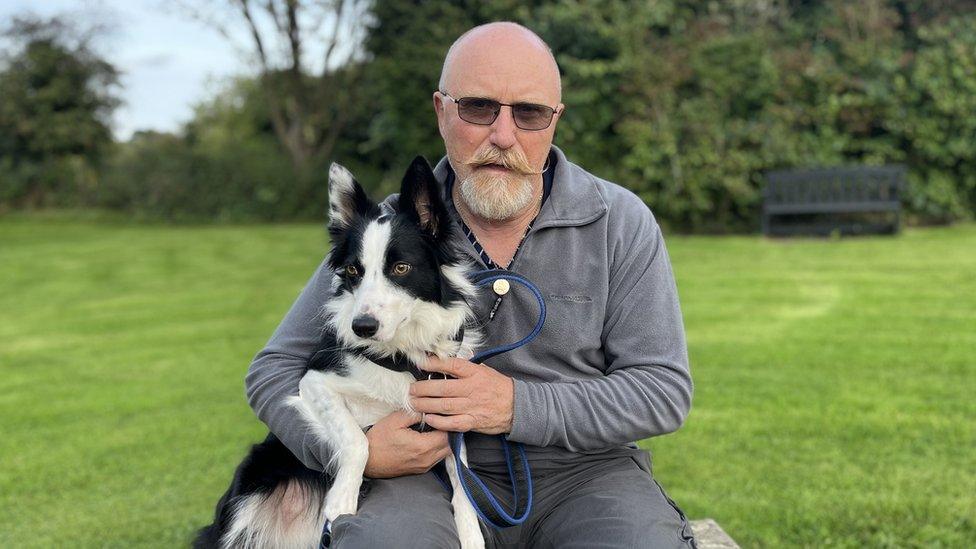
- Published5 October 2023
